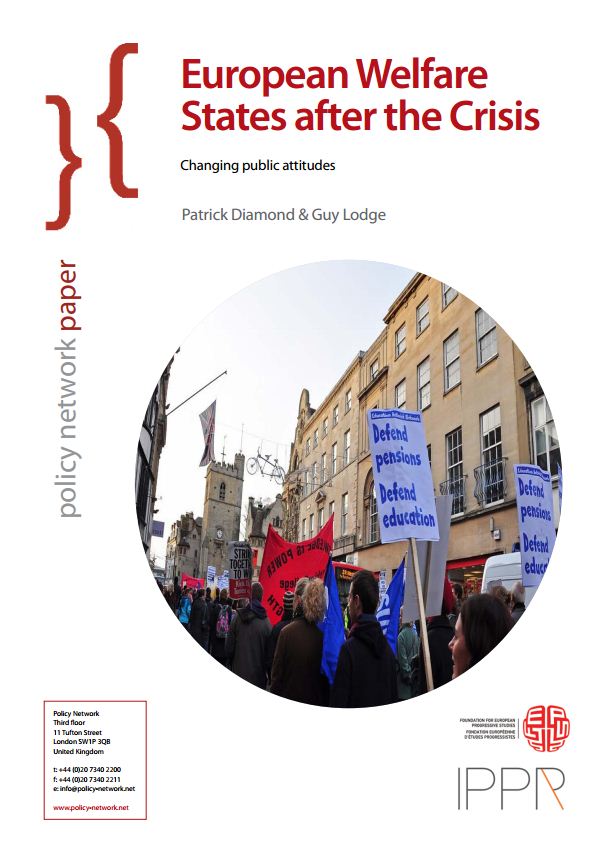The Crisis has accelerated the defeat of the partisans of the traditional Welfare State. It seems there are no arguments to support public services, even the most essential. However, this mantra of the great capitalism is not shared by the public sentiment. People from the IPPR have researched on the topic and conclude a divided debate between the architects of the institutional change (who are dismantling the Welfare State) and organised groups that fight against the dissappearing of the public services.
 Experts thought that the crisis was going to promote the Nordic vision of the Welfare State, as it was happening from the nineties: «Since the late 1990s, there has been a growing consensus within European social democracy about the case for a ‘Nordic-style’ social investment state, creating a virtuous ‘equilibrium’ between markets and social justice».
Experts thought that the crisis was going to promote the Nordic vision of the Welfare State, as it was happening from the nineties: «Since the late 1990s, there has been a growing consensus within European social democracy about the case for a ‘Nordic-style’ social investment state, creating a virtuous ‘equilibrium’ between markets and social justice».
But the survey they have set up for this study, European Welfare States after the crisis, shows a very different picture. «The evidence indicates that public support for tackling ‘new’ social risks is not particularly strong at present, and worryingly the financial crisis appears to have reinforced the consensus for the ‘traditional’ welfare state, promising higher pension payments and public expenditure on health alone».
Authors believe we face a difficult dilemma. People expect to maintain the Welfare State but we have to cope with the need of more efficiency and equity. The solution will come from a new evangelization about the real capacities of the public benefits in a context of economic uncertainty. They think it is worth to have an stake in «the strategy of shifting resources from passive income maintenance to employment and family promotion». But we need the commitment of political leaders who should not use the Welfare State as a weapon to catch voters.

Deja una respuesta